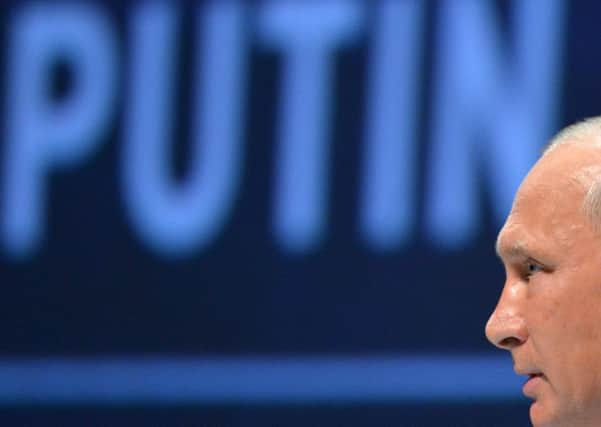Adrian Gallagher: Syria conflict feeds on global cycle of mistrust


It came amidst warnings by the German foreign minister, Frank-Walter Steinmeier, that US-Russian relations are now “more dangerous” than during the Cold War. The statement captured a growing international concern that this multi-faceted war has national, regional, international, and generational ramifications.
To make sense of the deadlock over Syria, it is important to place the crisis within the context of global power relations. To do this, I turn to three concepts in international relations.
Advertisement
Hide AdAdvertisement
Hide AdFirstly, anarchy. Within international relations, anarchy refers to the fact there is no world government at the international level. Unlike the domestic level, people and governments at the international level cannot ring 999 to seek help when they are in a crisis. Accordingly, there is no world government to enforce a peace in Syria.
Second, is the security dilemma. The logic here is that because it is impossible to know what is going on in the minds of other human beings, governments operate within a perpetual cycle of mistrust and fear. The leaders of the US, Russia, Syria, Iran, Iraq, Saudi Arabia, China, the UK, and France (to name just a few) may make bold declarations but how do we know what their intentions are?
Think of all the times you have read or heard the statement “we will judge person x based on their actions not on what they say”. This reflects an attempt to infer the intent of the person involved by focusing on their behaviour rather than on words.
In relation to Syria, the US is interpreting the air strikes against hospitals in Aleppo as further evidence that the intentions of the Russian government is to support the Syrian regime at all costs, despite the fact that President Assad has committed crimes against humanity.
Advertisement
Hide AdAdvertisement
Hide AdThe third factor is co-operation (or lack of it). Organisations such as the United Nations are intended to mitigate the impact of anarchy and the security dilemma by creating a safe environment in which government representatives can discuss things.
The thinking is that states will be more willing to accept the outcome of a decision-making process, even if it is not the outcome they initially desired, because they felt as though they were part of that process in the first place.
In relation to Syria, however, there have been five years of negotiations and proposed ceasefires amounting to very little indeed. The UN Resolution in 2014 which endorsed the delivery of aid to Syria, was judged by the UN Secretary-General Ban Ki-moon as something that should not have even needed to be negotiated because it is ‘something allowed by the virtue of international law’.
Although there are many other factors the three concepts of anarchy, the security dilemma, and co-operation help us make sense of the global power relations shaping the Syrian crisis. For which the West too bears responsibility.
Advertisement
Hide AdAdvertisement
Hide AdIt is far too easy to stand back and decry the actions of Russia without understanding the role that the West plays in creating conditions of mistrust at international level.
Here it is important to recognise that Syria cannot be analysed in isolation. For example, the crisis in Ukraine since 2013 has further exacerbated hostility between the US and Russia.
On this, the leading US political scientist, John J. Mearsheimer, condemned Western decision-making, or more specifically, the Eastern expansion of Nato as a misguided foreign policy.
How can Russia trust the intentions of the West when it continues to expand Nato right up to its border? Such action only goes to unintentionally reproduce the cycle of mistrust and fear that overshadows all East-West relations.
Advertisement
Hide AdAdvertisement
Hide AdOn a final note, we should not overstate the current crisis. The claim that US-Russia relations are now “more dangerous” than the Cold War seems questionable, after all, there is no current Cold War-like threat of nuclear war.
That said, with no world government to intervene, combined with heightened cycle of mistrust and fear hindering all attempts to forge co-operative bonds, the future looks bleak.
To use the words of Mearsheimer, this is ‘the tragedy of great power politics’ in which Syria finds itself.
Dr Adrian Gallagher is an Associate Professor in International Security in the Department of Politics and International Studies at the University of Leeds.